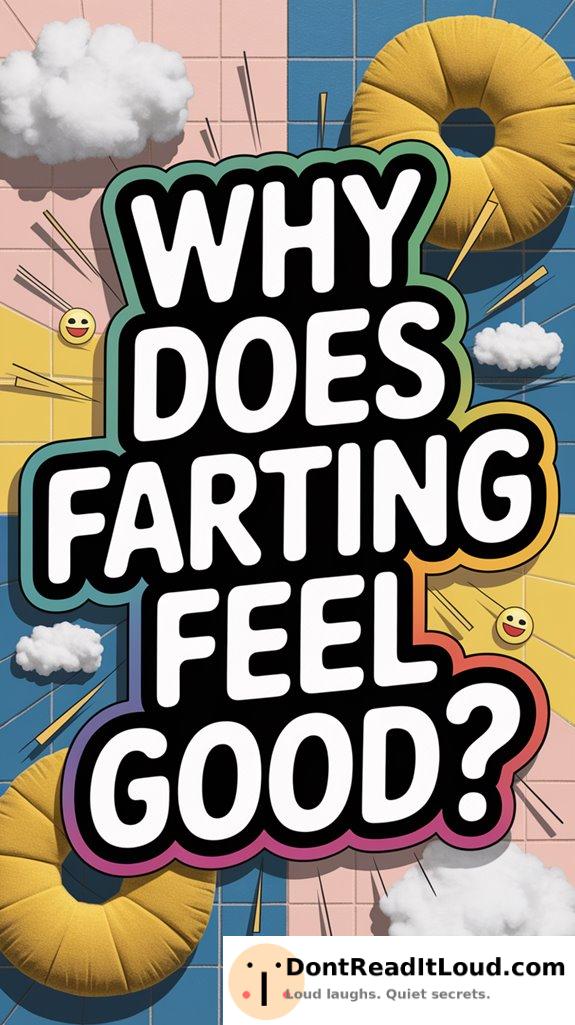
Letting out a fart can feel great because you’re releasing built-up pressure in your intestines, which can lessen discomfort and improve your mood. The sensation is partly due to the rectoanal inhibitory reflex, which lets gas escape while securing other contents. Regularly passing gas is a sign of a healthy digestive system. Physically, it can also trigger endorphin release and promote relaxation. Curious about why this happens? There’s even more to explore about the science of farting!

Although it mightn’t be the most glamorous topic, understanding why farting feels good can be enlightening. Most people have felt that satisfying relief after releasing gas. This comfort comes mainly from how your digestive system handles internal pressure. Gas builds up from swallowed air and digestion, stretching the intestines and causing discomfort. Letting the gas out relieves this pressure and brings instant comfort.
Sensory nerves in the rectum and anal canal are crucial in this process. They sense the pressure from gas buildup and send signals to your brain. Releasing gas allows these nerves to relax the muscles in your abdomen and anal sphincters, making you feel better. This mechanism, known as the rectoanal inhibitory reflex (RAIR), ensures only gas escapes and keeps other contents secure. Aerophagia contributes to this process by increasing the amount of air that travels through the gut and eventually exits as flatus.
Easing abdominal discomfort is another reason farting feels pleasant. Trapped gas can cause bloating, fullness, and pain. Passing gas directly reduces the amount of trapped air, easing symptoms like distension and cramping. Holding gas in can increase discomfort, but letting it go brings quick relief and shows how well your body self-regulates. This is why regular gas expulsion is crucial for maintaining a healthy digestive tract and reducing abdominal discomfort.
Farting also signals that your digestive system is working properly. Regular gas release means your body is breaking down complex carbs as it should. Gut bacteria help digest food, producing gas as a normal byproduct. Releasing this gas shows your digestive system is functioning as expected. Furthermore, the presence of hydrogen sulfide in small amounts might contribute to the distinctive odor but is a normal part of the digestive process.
There’s a mental aspect to this relief as well. Physical discomfort from trapped gas can affect your mood or cause anxiety. Letting gas out can ease these feelings, connecting physical and mental relief. The relaxation response lowers stress hormones and supports mental calm.
Some people even experience a mood boost from endorphins, the body’s natural painkillers. Physical activity—which can trigger farting—releases endorphins and activates your parasympathetic nervous system. This system helps you relax, lowers your heart rate, and relaxes muscles, further explaining why farting feels so good.
Conclusion
In the end, letting out a fart eases both physical and mental tension. It’s your body’s natural way to get rid of built-up pressure in your gut, and it’s perfectly normal. Accepting this everyday function can bring comfort and relaxation. So next time you need to, don’t hold it in—enjoy the brief relief it offers.



